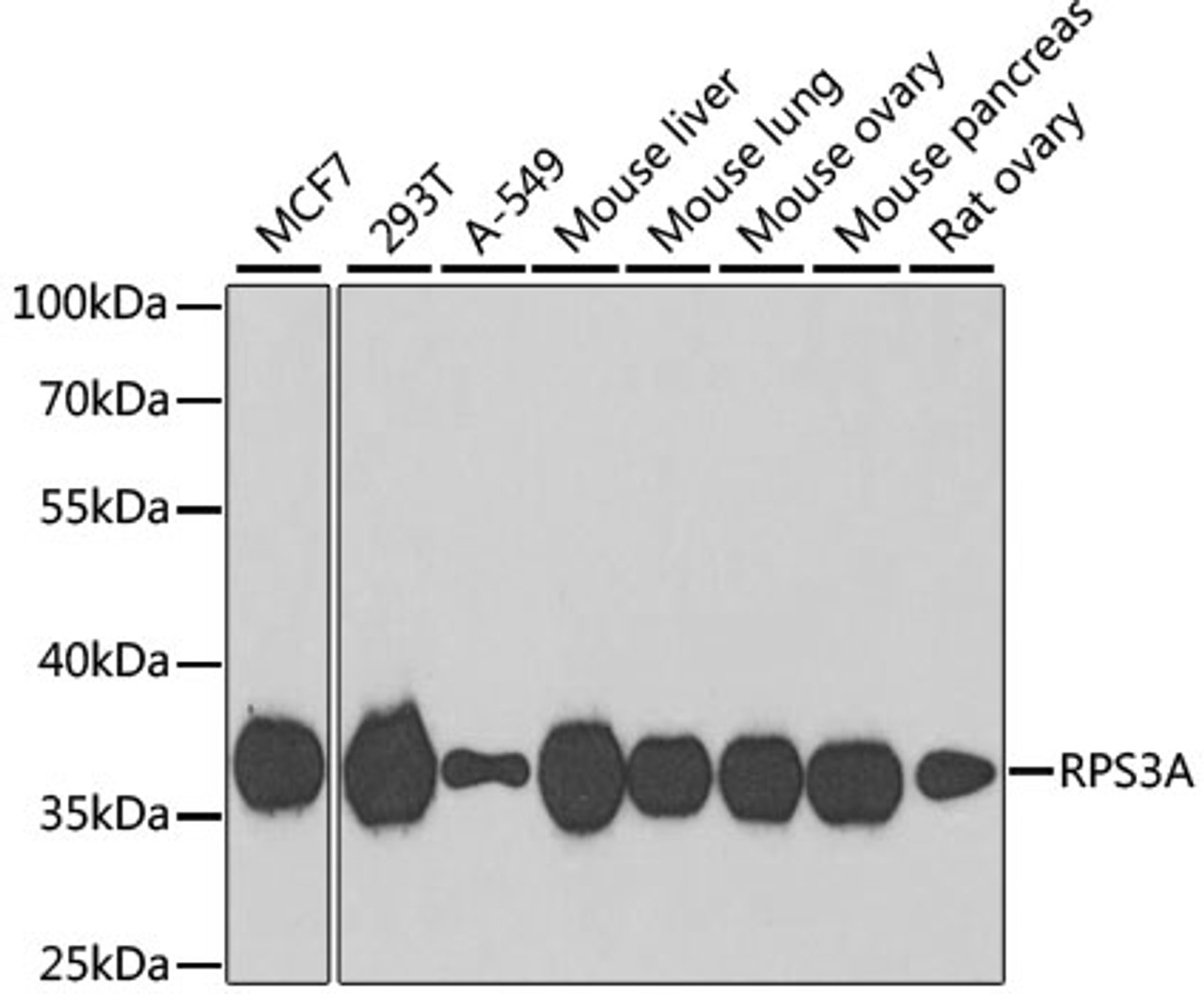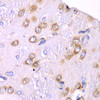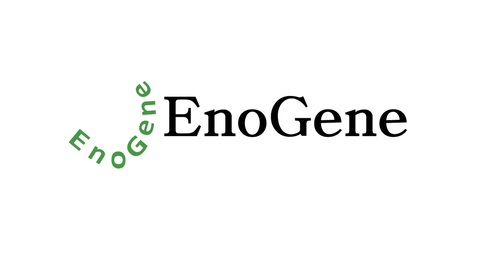Product Description
RPS3A Antibody | 19-919 | ProSci
Host: Rabbit
Reactivity: Human, Mouse, Rat
Homology: N/A
Immunogen: Recombinant fusion protein containing a sequence corresponding to amino acids 1-264 of human RPS3A (NP_000997.1) .
Research Area: Other
Tested Application: WB, IHC, IF, IP
Application: WB: 1:500 - 1:2000
IHC: 1:50 - 1:200
IF: 1:50 - 1:200
IP: 1:50 - 1:100
Specificiy: N/A
Positive Control 1: MCF7
Positive Control 2: 293T
Positive Control 3: A-549
Positive Control 4: Mouse liver
Positive Control 5: Mouse lung
Positive Control 6: Mouse ovary
Molecular Weight: Observed: 35kDa
Validation: N/A
Isoform: N/A
Purification: Affinity purification
Clonality: Polyclonal
Clone: N/A
Isotype: IgG
Conjugate: Unconjugated
Physical State: Liquid
Buffer: PBS with 0.02% sodium azide, 50% glycerol, pH7.3.
Concentration: N/A
Storage Condition: Store at -20˚C. Avoid freeze / thaw cycles.
Alternate Name: 40S ribosomal protein S3a {ECO:0000255|HAMAP-Rule:MF_03122}, v-fos transformation effector protein, Fte-1, RPS3A {ECO:0000255|HAMAP-Rule:MF_03122}, FTE1, MFTL
User Note: Optimal dilutions for each application to be determined by the researcher.
BACKGROUND: Ribosomes, the organelles that catalyze protein synthesis, consist of a small 40S subunit and a large 60S subunit. Together these subunits are composed of 4 RNA species and approximately 80 structurally distinct proteins. This gene encodes a ribosomal protein that is a component of the 40S subunit. The protein belongs to the S3AE family of ribosomal proteins. It is located in the cytoplasm. Disruption of the gene encoding rat ribosomal protein S3a, also named v-fos transformation effector protein, in v-fos-transformed rat cells results in reversion of the transformed phenotype. This gene is co-transcribed with the U73A and U73B small nucleolar RNA genes, which are located in its fourth and third introns, respectively. As is typical for genes encoding ribosomal proteins, there are multiple processed pseudogenes of this gene dispersed through the genome. Alternatively spliced transcript variants have been found for this gene.
 Euro
Euro
 USD
USD
 British Pound
British Pound
 NULL
NULL
















